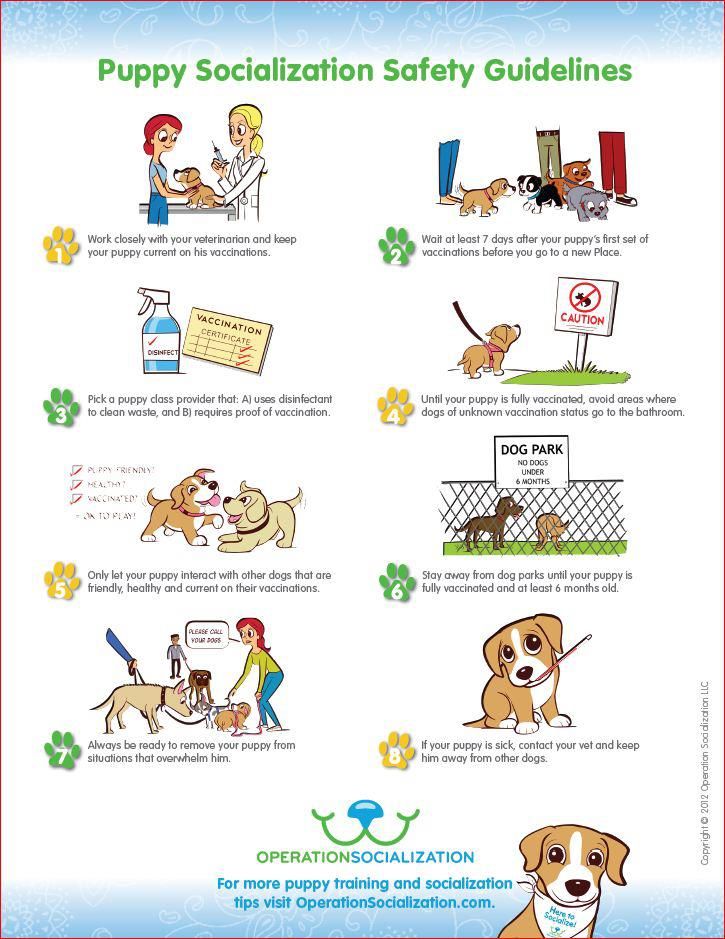Article-at-a-Glance
The best time to start socializing a puppy is between 3 to 12 weeks of age.
Early socialization (3-8 weeks) should be handled by breeders or foster parents.
Socialization involves exposing puppies to various sights, sounds, and experiences.
Socializing a puppy at 12 weeks is not too late but requires consistent effort.
Techniques for socializing a 4-month-old puppy include gradual exposure and positive reinforcement.
How Do I Socialize My Puppy
The Critical Period for Puppy Socialization
Socializing a puppy is essential for ensuring they grow up to be well-adjusted, confident dogs. The critical period for puppy socialization is from 3 to 12 weeks of age. During this time, a puppy’s brain is most receptive to new experiences and learning how to interact with the world around them.
Most importantly, socialization during this period can significantly impact a dog’s behavior for the rest of their life. Puppies that are well-socialized tend to be more confident, less fearful, and better behaved.
Importance of Early Socialization
Early socialization sets the foundation for a puppy’s future interactions. It involves exposing them to a variety of stimuli, including different people, environments, sounds, and other animals. This exposure helps them become comfortable with new experiences and reduces the likelihood of developing behavioral issues later in life. For example, visiting Washington Park can be a great way to introduce your puppy to new environments.
Besides that, early socialization can prevent common problems such as fearfulness, aggression, and anxiety. It helps puppies learn how to cope with different situations and builds their confidence.
“Pin page” from www.pinterest.com and used with no modifications.
Starting the Socialization Process
Early Age Socialization (3-8 Weeks)
During the early weeks of a puppy’s life, the breeder or foster parents play a crucial role in their socialization. Gentle handling and exposure to various stimuli should start as early as 3 weeks of age. This early exposure helps in the development of a friendly and confident dog.
Here are some key activities that should be part of early age socialization:
Gentle handling and petting by different people
Exposure to different sounds like household noises, music, and traffic
Introduction to various textures and surfaces such as carpet, tile, and grass
Socializing Puppies from 8-12 Weeks
When your puppy comes home, it’s time to continue the socialization process. This period is crucial as the puppy is still highly receptive to new experiences. The goal is to make these experiences positive and varied.
Introduce your puppy to different environments, such as parks, busy streets, and quiet areas.
Encourage interactions with people of all ages, including children, adults, and seniors.
Expose your puppy to other dogs and animals in a controlled and safe manner.
During this period, it’s essential to make socialization a positive experience. Use treats, praise, and gentle encouragement to help your puppy feel comfortable and confident.
Extending Socialization Beyond 12 Weeks
Is 12 Weeks Too Late?
Many puppy owners worry that they’ve missed the critical window if they start socializing their puppy after 12 weeks. The truth is, while the prime socialization window is up to 12 weeks, it’s not too late to start socializing your puppy after this period. However, it will require more consistency and patience.
Techniques for Socializing a 4 Month Old Puppy
Socializing a 4-month-old puppy requires a slightly different approach compared to younger puppies. By this age, they might have already developed some fears or anxieties. However, with patience and consistent effort, you can still successfully socialize them.
Start by gradually exposing your puppy to new experiences in a controlled manner. It’s important to go at their pace and not overwhelm them. For example, if your puppy seems anxious around new people, begin by introducing them to one calm person at a time before gradually increasing the number of people they meet.
Here are some specific techniques to help socialize a 4-month-old puppy:
Use positive reinforcement such as treats and praise to reward calm and confident behavior.
Gradually increase the complexity of new experiences, starting with less intimidating situations.
Provide plenty of opportunities for your puppy to explore different environments, sounds, and textures.
Effective Socialization Activities
Engaging your puppy in various socialization activities can help them become well-rounded and confident. These activities should be fun and rewarding for your puppy. Here are some effective socialization activities to consider:
Enroll your puppy in a puppy socialization class where they can interact with other puppies and learn basic commands.
Organize playdates with other well-behaved dogs to help your puppy learn appropriate play behavior.
Take your puppy on car rides to expose them to different sights and sounds.
Visit pet-friendly stores and outdoor markets to introduce your puppy to new environments and people.
People and Environment Exposure
Introducing your puppy to a variety of people and environments is crucial for their social development. This exposure helps them become comfortable and confident in different situations. Here are some tips for people and environment exposure:
When introducing your puppy to new people, make sure the interactions are positive and calm. Encourage people to offer treats and gently pet your puppy. This will help your puppy associate new people with positive experiences.
In terms of environment exposure, take your puppy to different places such as parks, busy streets, and quiet areas. Allow them to explore and sniff around at their own pace. Gradual exposure to different environments will help your puppy become more adaptable and less fearful.
Introduction to Other Dogs and Animals
Socializing your puppy with other dogs and animals is an important aspect of their development. Positive interactions with other animals can help prevent fear and aggression issues in the future. Here are some steps to introduce your puppy to other dogs and animals:
Start with controlled introductions, such as meeting a calm, well-behaved dog on a leash.
Allow the dogs to sniff and interact at their own pace, monitoring their body language for signs of stress or aggression.
Gradually increase the duration and complexity of the interactions as your puppy becomes more comfortable.
Expose your puppy to other animals, such as cats, in a controlled and supervised manner.
Positive Reinforcement Training
Positive reinforcement training is a powerful tool for socializing your puppy. This training method involves rewarding your puppy for desired behaviors, which encourages them to repeat those behaviors. Here are some tips for using positive reinforcement training:
Use treats, praise, and toys as rewards for good behavior.
Be consistent with your rewards and timing to reinforce the desired behavior.
Keep training sessions short and fun to maintain your puppy’s interest and focus.
Gradually increase the difficulty of the training exercises as your puppy progresses.
Common Challenges and Solutions
Socializing a puppy can come with its own set of challenges. It’s important to address these challenges promptly to ensure your puppy’s socialization process is successful.
Addressing Fearfulness and Anxiety
If your puppy shows signs of fearfulness or anxiety, it’s crucial to address these issues with patience and care. Gradual exposure and positive reinforcement can help your puppy overcome their fears. Here are some tips for addressing fearfulness and anxiety:
Start by identifying the specific triggers that cause your puppy to feel fearful or anxious. Gradually expose your puppy to these triggers in a controlled and positive manner. Use treats and praise to reward calm behavior and help your puppy build positive associations with the triggers.
For example, if your puppy is afraid of loud noises, start by playing recordings of the noises at a low volume and gradually increase the volume over time. Pair the exposure with treats and praise to help your puppy feel more comfortable.
Be patient and take things at your puppy’s pace.
Use positive reinforcement to reward calm and confident behavior.
Gradually increase the intensity and duration of the exposure to the triggers.
Consistency and Patience in Socialization
Consistency and patience are key to successful puppy socialization. It’s important to provide regular and positive socialization experiences for your puppy. Here are some tips for maintaining consistency and patience in socialization:
Set a socialization schedule and stick to it.
Be patient and allow your puppy to progress at their own pace.
Provide plenty of positive reinforcement and rewards.
Seek professional help if you encounter any significant challenges.
Maintaining Socialization Beyond Puppyhood
Socialization doesn’t end when your puppy grows up. It’s important to continue providing socialization experiences throughout their life to ensure they remain well-adjusted and confident. Here are some tips for maintaining socialization beyond puppyhood:
Continue exposing your dog to new environments, people, and animals.
Engage in regular training sessions to reinforce positive behaviors.
Provide plenty of opportunities for social interactions and play.
Monitor your dog’s behavior and address any signs of fear or anxiety promptly.
Frequently Asked Questions
When should I start socializing my puppy?
The best time to start socializing your puppy is between 3 to 12 weeks of age. During this critical period, your puppy’s brain is most receptive to new experiences and learning how to interact with the world around them.
Is it safe to socialize my puppy before it is fully vaccinated?
It’s important to balance socialization with safety. While your puppy may not be fully vaccinated, you can still safely socialize them by avoiding high-risk areas like dog parks and sticking to controlled environments. Consult your veterinarian for guidance on safe socialization practices.
What are some signs that my puppy is not well-socialized?
Signs that your puppy may not be well-socialized include fearfulness, aggression, excessive barking, and difficulty adapting to new environments or people. If you notice these signs, it’s important to address them promptly with positive reinforcement and gradual exposure to new experiences.
Can socialization help reduce my puppy’s anxiety?
Yes, socialization can help reduce your puppy’s anxiety by exposing them to new experiences in a controlled and positive manner. This helps them build confidence and learn how to cope with different situations, reducing anxiety over time.
What should I do if my puppy is shy or nervous?
If your puppy is shy or nervous, it’s important to be patient and provide positive reinforcement. Gradually expose them to new experiences at their own pace and reward calm behavior with treats and praise. Seek professional help if needed to address any significant challenges.






